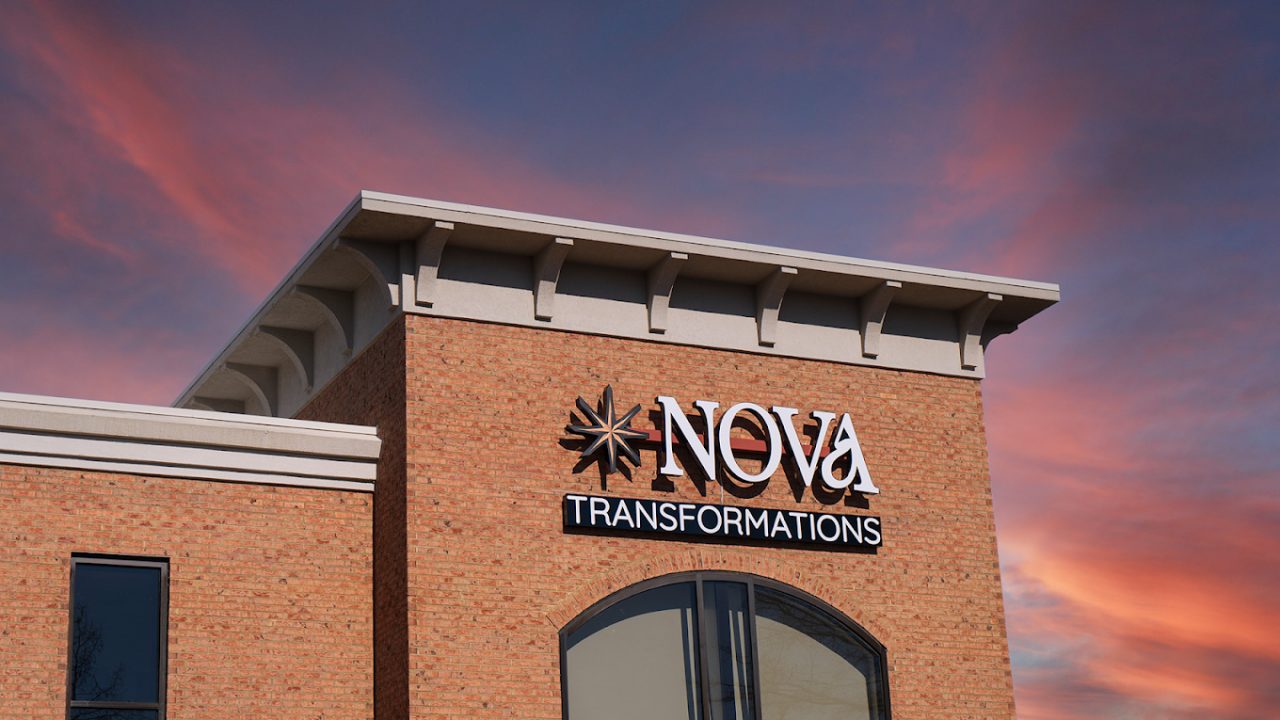Prazosin Blood Pressure Medication Recall 2025: What Charlotte Patients Need to Know
The U.S. Food and Drug Administration (FDA) announced that drug manufacturers have recalled more than 580,000 bottles of the blood pressure medication prazosin hydrochloride over concerns about potential cancer-causing nitrosamine impurities. This recall affects patients across Charlotte, Mecklenburg County, and throughout North Carolina who depend on this medication for blood pressure management and PTSD-related nightmares.
At Nova Transformations in Charlotte, we understand that many individuals in addiction recovery take prescribed medications like prazosin for co-occurring health conditions including high blood pressure, PTSD, and trauma-related sleep disturbances. This recall raises important questions about medication safety, what patients should do if they’re taking affected medications, and how to navigate prescription drug concerns while in recovery.
This comprehensive guide provides Charlotte-area patients with essential information about the prazosin recall, explains what nitrosamine contamination means, offers actionable steps for affected individuals, and discusses broader medication safety considerations for people in substance use disorder treatment.
Understanding the Prazosin Recall
🚨 Immediate Action Required
If you are currently taking prazosin (Minipress or generic):
- Do NOT stop taking your medication abruptly without medical supervision
- Check your medication bottle for lot numbers
- Contact your doctor or pharmacist immediately to determine if your medication is affected
- Do not panic —the FDA emphasizes that short-term exposure risk is likely very low
For Charlotte-area patients, contact your pharmacy (CVS, Walgreens, Harris Teeter, etc.) or healthcare providers at Atrium Health, Novant Health, or your primary care physician.
Recall Details
According to the FDA announcement on October 31, 2025:
- Manufacturers: Teva Pharmaceuticals USA and Amerisource Health Services
- Medication: Prazosin hydrochloride capsules (brand name: Minipress)
- Amount recalled: More than 580,000 bottles of various strengths
- Recall type: Voluntary nationwide recall
- Risk classification: Class II (may cause temporary or medically reversible adverse health consequences)
- Reason: Potential contamination with nitrosamine impurities
What is Prazosin?
Prazosin hydrochloride is an alpha-blocker medication with two primary uses:
1. High Blood Pressure Treatment:
Prazosin relaxes and widens blood vessels, allowing blood to flow more easily and reducing blood pressure. It’s been used for hypertension since the 1970s and remains an effective option for many patients.
2. PTSD-Related Nightmares:
Prazosin is commonly prescribed off-label to reduce the frequency and intensity of nightmares associated with post-traumatic stress disorder (PTSD). By blocking certain stress responses in the brain, particularly the “fight or flight” chemicals that can trigger nightmares, prazosin helps improve sleep quality for trauma survivors.
Relevance to Addiction Recovery: Many individuals in substance use disorder treatment at facilities like Nova Transformations have co-occurring PTSD or trauma, making prazosin a commonly prescribed medication in recovery settings.
Understanding Nitrosamine Contamination
Nitrosamines are a class of chemical compounds, some of which are potentially carcinogenic (cancer-causing). According to the FDA:
- Formation: Nitrosamine impurities can form during the manufacturing process or storage of medications
- Risk level: Exposure to nitrosamines above acceptable levels over extended periods may increase cancer risk
- Short-term exposure: The FDA emphasizes that risk from short-term exposure is likely very low
- Regulatory limits: The FDA has established acceptable intake limits for nitrosamines in medications
- Recall trigger: When testing reveals levels above acceptable limits, recalls are initiated
💡 Nitrosamine Recalls in Recent Years
Prazosin is not the first medication affected by nitrosamine contamination. Recent recalls include:
- 2018-2019: Valsartan and other ARB blood pressure medications
- 2019-2020: Ranitidine (Zantac) – completely pulled from market
- 2021-2022: Metformin (diabetes medication)
- 2023-2024: Various other blood pressure and heart medications
- 2025: Prazosin
The FDA has intensified testing and quality control measures for pharmaceuticals to detect and prevent nitrosamine contamination.
What Patients Taking Prazosin Should Do
🔑 Immediate Steps for Prazosin Patients
- Verify if your medication is affected:
- Check the lot number on your medication bottle
- Visit the FDA recall website to see affected lot numbers
- Contact your pharmacy with your lot number for verification
- Contact your healthcare provider:
- Call your prescribing physician immediately
- Discuss whether to continue your current medication or switch
- Do NOT stop taking prazosin without medical guidance
- Monitor for symptoms:
- Be aware of any unusual symptoms
- Keep track of blood pressure readings if using for hypertension
- Note any changes in sleep or nightmares if using for PTSD
- Explore alternatives if needed:
- Your doctor can prescribe different blood pressure medications
- Other options exist for PTSD-related nightmares
- Don’t wait for appointments—address this promptly
- Return affected medication:
- Return recalled medication to your pharmacy
- Most pharmacies will provide refunds or replacements
- Do not throw away in household trash—use proper disposal
Why You Should NOT Stop Prazosin Abruptly
Suddenly stopping blood pressure medication can be dangerous:
- Rebound hypertension: Blood pressure may spike to dangerous levels
- Increased heart attack/stroke risk: Sudden discontinuation increases cardiovascular risk
- Return of nightmares: For PTSD patients, nightmares may immediately return
- Sleep disruption: Abrupt cessation can worsen sleep quality
Always consult with your doctor before stopping or changing any prescription medication.
Alternative Medications
For High Blood Pressure:
If you need to switch from prazosin, your doctor may consider:
- ACE Inhibitors: Lisinopril, enalapril, ramipril
- ARBs: Losartan, valsartan (from unaffected lots), olmesartan
- Calcium Channel Blockers: Amlodipine, nifedipine
- Beta Blockers: Metoprolol, atenolol
- Diuretics: Hydrochlorothiazide, chlorthalidone
- Other Alpha Blockers: Doxazosin, terazosin
For PTSD-Related Nightmares:
Alternative options include:
- Other alpha blockers: Doxazosin (similar mechanism)
- Clonidine: Another blood pressure medication used for nightmares
- Antidepressants: SSRIs or SNRIs that treat underlying PTSD
- Therapy: Image rehearsal therapy, EMDR, CPT for trauma processing
- Sleep hygiene: Non-medication approaches to improve sleep
Medication Safety in Addiction Recovery
At Nova Transformations in Charlotte, we recognize that many individuals in substance use disorder treatment take prescribed medications for co-occurring medical and mental health conditions. Understanding medication safety is crucial for comprehensive recovery.
Common Medications in Recovery Settings
People in addiction treatment often need medications for:
Cardiovascular Health:
- Blood pressure medications: Years of substance use can damage the cardiovascular system
- Cholesterol medications: Statins for heart health
- Heart rhythm medications: For arrhythmias caused by stimulant use
Mental Health Conditions:
- Antidepressants: SSRIs, SNRIs for depression and anxiety
- Mood stabilizers: For bipolar disorder
- Antipsychotics: For schizophrenia or severe mood disorders
- Non-addictive anxiety medications: Buspirone, hydroxyzine
PTSD and Trauma:
- Prazosin: For nightmares (as discussed in this recall)
- Antidepressants: FDA-approved for PTSD
- Sleep aids: Non-benzodiazepine options
Physical Health Issues:
- Pain management: Non-opioid alternatives
- Diabetes medications: Managing blood sugar
- Thyroid medications: Hormonal regulation
- Gastrointestinal medications: For liver, stomach issues
✨ Nova’s Approach to Medication Management
At Nova Transformations in Charlotte, our comprehensive care includes:
- Medical evaluation: Assessment of all health conditions requiring medication
- Medication review: Examining all prescribed medications for interactions and necessity
- Coordination with prescribers: Working with your doctors to ensure safe, appropriate medication use
- Monitoring: Regular check-ins about medication effects and side effects
- Education: Teaching clients about their medications and why they’re important
- Safety protocols: Ensuring medications don’t have abuse potential or trigger relapse
- Dual diagnosis expertise: Treating co-occurring conditions that require medication
Medications to Avoid in Recovery
Certain medications have addiction potential and should be avoided or used with extreme caution:
High-Risk Medications:
- Benzodiazepines: Xanax, Ativan, Valium, Klonopin (highly addictive)
- Opioid pain medications: Oxycodone, hydrocodone, morphine
- Stimulants: Adderall, Ritalin (for those with stimulant use history)
- Sedative-hypnotics: Ambien, Lunesta (can be habit-forming)
- Muscle relaxants: Soma, Flexeril (some have abuse potential)
Safe Alternatives:
Non-addictive options exist for most conditions:
- Anxiety: SSRIs, buspirone, hydroxyzine, therapy
- Sleep: Trazodone, melatonin, sleep hygiene, CBT for insomnia
- Pain: NSAIDs, acetaminophen, physical therapy, non-pharmacological approaches
- ADHD: Non-stimulant options like Strattera, Wellbutrin, behavioral interventions
Blood Pressure Medications Are Safe in Recovery
It’s important to emphasize: Non-addictive medications like blood pressure drugs are completely safe in recovery.
- No abuse potential: Blood pressure medications don’t produce euphoria or high
- Medically necessary: Uncontrolled hypertension is dangerous
- Support recovery: Good physical health supports mental health and sobriety
- Don’t trigger cravings: These medications don’t interact with addiction pathways
Never avoid necessary medical treatment due to fears about medication in recovery. Work with knowledgeable providers who understand addiction medicine.
Dual Diagnosis and Medication Management
Many individuals struggling with substance use disorders have co-occurring mental health or medical conditions requiring medication—a situation called dual diagnosis.
Common Dual Diagnosis Scenarios
PTSD and Substance Use Disorder:
This is where prazosin becomes particularly relevant:
- Many people with addiction have experienced trauma
- PTSD symptoms (nightmares, hypervigilance, flashbacks) often drive substance use
- Prazosin helps reduce nightmares, improving sleep and reducing relapse risk
- Treating PTSD alongside addiction improves outcomes
Anxiety Disorders and Addiction:
- Generalized anxiety disorder (GAD)
- Panic disorder
- Social anxiety disorder
- Many people used substances to self-medicate anxiety
- Proper anxiety treatment with non-addictive medications supports recovery
Depression and Substance Use:
- Depression commonly co-occurs with addiction
- Antidepressants are not addictive and support recovery
- Untreated depression increases relapse risk
- SSRIs and SNRIs are safe in recovery
Cardiovascular Issues:
- Stimulant use (cocaine, methamphetamine) damages the heart
- Alcohol increases blood pressure
- Blood pressure medications like prazosin may be necessary
- Heart health is crucial for long-term recovery success
Our Dual Diagnosis Treatment in Charlotte
Nova Transformations’ dual diagnosis program provides integrated treatment for substance use disorders and co-occurring conditions:
- Comprehensive assessment: Evaluating all mental health and medical conditions
- Integrated treatment: Addressing addiction and other conditions simultaneously
- Medication management: Safe, non-addictive medications when needed
- Therapy for both conditions: Trauma-focused therapy, CBT for depression/anxiety, addiction counseling
- Medical coordination: Working with prescribers to ensure comprehensive care
- Family education: Helping loved ones understand dual diagnosis
Of people with substance use disorders have co-occurring mental health conditions requiring integrated treatment
📍 Medication Safety Resources in Charlotte, NC
Charlotte-area patients can access medication information and support through:
- Atrium Health: Multiple locations with pharmacy services and medical care
- Novant Health: Full-service healthcare system with medication management
- CVS, Walgreens, Harris Teeter Pharmacies: Throughout Charlotte for medication questions
- Mecklenburg County Health Department: Resources for uninsured patients
- North Carolina Poison Control: 1-800-222-1222 for medication emergencies
- FDA MedWatch: Report adverse events at fda.gov/safety/medwatch
- Nova Transformations: Call (704) 961-9322 for medication questions during treatment
Understanding Prescription Drug Recalls
Drug recalls, while concerning, are part of the FDA’s safety monitoring system designed to protect patients.
Types of Drug Recalls
| Recall Class | Risk Level | Description | Examples |
|---|---|---|---|
| Class I | High Risk | Reasonable probability that use will cause serious adverse health consequences or death | Contamination with dangerous pathogens, major labeling errors |
| Class II | Moderate Risk | May cause temporary or medically reversible adverse health consequences (Prazosin recall is Class II) | Nitrosamine contamination, minor impurities, packaging issues |
| Class III | Low Risk | Not likely to cause adverse health consequences | Labeling problems, packaging defects not affecting safety |
How Drug Recalls Happen
- Detection: Issue discovered through FDA testing, manufacturer quality control, or adverse event reports
- Investigation: FDA and manufacturer determine scope and severity
- Classification: Risk level assigned (Class I, II, or III)
- Recall initiation: Usually voluntary by manufacturer, occasionally FDA-mandated
- Public notification: FDA announces recall, media reports spread information
- Product removal: Affected products removed from market
- Patient notification: Doctors, pharmacies notify affected patients
Your Rights as a Patient
When your medication is recalled, you have rights:
- Timely notification: Right to be informed about recalls affecting your medications
- Refund or replacement: Pharmacies typically provide refunds for recalled medications
- Alternative treatment: Access to substitute medications if needed
- Report adverse events: You can report problems to FDA MedWatch
- Medical consultation: Right to discuss concerns with your healthcare provider
Preventing Future Exposure
Steps to protect yourself from medication safety issues:
- Stay informed: Sign up for FDA recall alerts at FDA.gov
- Know your medications: Keep a list of all medications, doses, and lot numbers
- Regular pharmacy: Use one pharmacy that maintains your complete medication record
- Ask questions: Don’t hesitate to ask pharmacists about medication quality and recalls
- Report problems: Report unusual symptoms or suspected medication issues
- Proper storage: Store medications as directed to prevent degradation
- Check expiration dates: Don’t use expired medications
Comprehensive Care with Safe Medication Management in Charlotte
At Nova Transformations, we provide integrated addiction treatment that includes safe, appropriate medication management for co-occurring conditions. Whether you need help with substance use disorder, have concerns about medications like prazosin, or need dual diagnosis treatment, our expert team is here to help.
We accept most major insurance plans. Unfortunately, we do not accept Medicare or Medicaid at this time.
Confidential assessment available. Comprehensive addiction treatment with medical coordination.
Frequently Asked Questions About the Prazosin Recall
The FDA announced a recall of prazosin hydrochloride (brand name Minipress) in October 2025. Teva Pharmaceuticals USA and Amerisource Health Services issued voluntary nationwide recalls of more than 580,000 bottles of various strengths of prazosin capsules due to potential contamination with nitrosamine impurities, which are potentially cancer-causing chemicals. The recall is classified as Class II, meaning the medication may cause temporary or medically reversible adverse health consequences, but the FDA emphasizes that the risk from short-term exposure is likely very low. Prazosin is used to treat high blood pressure by relaxing blood vessels, and is also commonly prescribed off-label for PTSD-related nightmares. If you take prazosin, contact your doctor or pharmacist immediately to determine if your specific medication lot is affected by the recall, but do NOT stop taking it without medical guidance, as abruptly stopping blood pressure medication can be dangerous.
Prazosin (brand name Minipress) is an alpha-blocker medication with two primary uses. First, it’s FDA-approved to treat high blood pressure (hypertension) by relaxing and widening blood vessels, allowing blood to flow more easily and reducing blood pressure. Second, prazosin is commonly prescribed off-label for PTSD-related nightmares and sleep disturbances. It helps reduce the frequency and intensity of trauma-related nightmares by blocking certain stress responses in the brain, particularly the alpha-1 receptors that can trigger the “fight or flight” response during sleep. This makes prazosin particularly relevant for people in addiction recovery, as many individuals with substance use disorders have co-occurring PTSD or trauma. At Nova Transformations in Charlotte, many of our clients benefit from prazosin for both blood pressure management and PTSD symptom relief. The medication has been used for decades and is generally well-tolerated, though this recent recall highlights the importance of quality control in pharmaceutical manufacturing.
If you are currently taking prazosin, follow these important steps: First and most importantly, do NOT stop taking your medication abruptly without medical supervision, as suddenly stopping blood pressure medication can cause dangerous rebound hypertension and increase heart attack or stroke risk. Second, check your medication bottle for the lot number and compare it to the FDA’s list of recalled lots on their website or by calling your pharmacy. Third, contact your prescribing physician, pharmacist, or healthcare provider immediately to determine if your specific medication lot is affected by the recall and to discuss next steps. Fourth, if your medication is affected, ask your doctor about alternative options such as switching to a different lot of prazosin, trying another blood pressure medication (like other alpha blockers, ACE inhibitors, or ARBs), or for PTSD nightmares, considering alternatives like doxazosin or other treatments. Fifth, return any recalled medication to your pharmacy for proper disposal and refund or replacement. Charlotte-area patients can contact their pharmacy (CVS, Walgreens, Harris Teeter) or healthcare providers at Atrium Health, Novant Health, or their primary care physician for guidance.
Nitrosamine impurities are a class of potentially cancer-causing (carcinogenic) chemicals that can form during the manufacturing or storage of certain medications. According to the FDA, these impurities are problematic because exposure to nitrosamines above acceptable levels over extended periods may increase cancer risk, though the agency emphasizes that the risk from short-term exposure is likely very low. Nitrosamines can form when certain manufacturing processes involve specific chemical reactions, or when medications are stored improperly. The FDA has established acceptable intake (AI) limits for different nitrosamines based on extensive toxicology research, and recalls occur when testing reveals levels exceeding these established safety thresholds. This isn’t the first medication affected by nitrosamine contamination—recent years have seen recalls of valsartan and other ARB blood pressure medications in 2018-2019, ranitidine (Zantac) which was completely pulled from the market in 2019-2020, metformin diabetes medication in 2021-2022, and various other cardiovascular medications. The FDA has intensified testing and quality control requirements for pharmaceutical manufacturers to detect and prevent nitrosamine contamination, which is why these issues are being discovered and addressed.
Yes, people in addiction recovery can and should take prescribed blood pressure medication when medically necessary. This is extremely important to understand: blood pressure medications like prazosin, ACE inhibitors, ARBs, calcium channel blockers, diuretics, and beta-blockers have no abuse potential and are completely safe in recovery. They don’t produce euphoria or a “high,” don’t trigger cravings for other substances, and don’t interact with the brain’s addiction pathways. In fact, managing high blood pressure is crucial in recovery because uncontrolled hypertension is dangerous and can lead to heart attack, stroke, kidney damage, and other serious health problems. Many people entering addiction treatment have elevated blood pressure due to years of substance use effects (stimulants damage the cardiovascular system, alcohol increases blood pressure), stress, poor diet and lifestyle habits, genetics, or co-occurring medical conditions. At Nova Transformations in Charlotte, we coordinate with medical providers to ensure comprehensive care including safe medication management. Our approach includes medical evaluation of all health conditions, medication review to ensure appropriate and safe prescriptions, coordination with prescribing physicians, regular monitoring of medication effects, and education about the importance of taking medications as prescribed. Never avoid necessary medical treatment due to unfounded fears about medication in recovery—work with knowledgeable providers who understand addiction medicine.
Prazosin helps reduce PTSD-related nightmares through its effects on the brain’s stress response system. The medication works by blocking alpha-1 adrenergic receptors in the brain, which are part of the system that triggers the “fight or flight” response. In people with PTSD, this stress response system is overactive, particularly during sleep, leading to intense, disturbing nightmares that replay traumatic events. By blocking these receptors, prazosin reduces the brain’s stress response during sleep, which decreases both the frequency and intensity of trauma-related nightmares, improves overall sleep quality, reduces night sweats and sleep disruption, and helps people feel more rested. Studies have shown prazosin to be effective for combat veterans, survivors of sexual assault, people with childhood trauma, and other PTSD populations. This is particularly relevant for addiction treatment because PTSD and substance use disorders commonly co-occur—many people use alcohol or drugs to self-medicate PTSD symptoms including nightmares. At Nova Transformations in Charlotte, we provide dual diagnosis treatment that addresses both PTSD and addiction simultaneously, often including medications like prazosin to manage trauma symptoms while clients work through trauma-focused therapy such as EMDR, CPT, or PE. Treating PTSD is essential for successful addiction recovery because untreated trauma significantly increases relapse risk.
Yes, Nova Transformations in Charlotte provides comprehensive medication management as part of our integrated addiction treatment approach. We understand that many individuals in substance use disorder treatment take prescribed medications for co-occurring medical and mental health conditions, and proper medication management is crucial for successful recovery. Our services include thorough medical assessment evaluating all health conditions that may require medication, comprehensive medication review examining all current prescriptions for appropriateness, safety, and potential interactions, coordination with prescribing physicians working collaboratively with your doctors to ensure comprehensive care, monitoring and support with regular check-ins about medication effects, side effects, and adherence, patient education teaching clients about their medications, why they’re important, and how they support recovery, safety protocols ensuring medications don’t have abuse potential or trigger relapse, and dual diagnosis treatment addressing co-occurring mental health conditions that often require medication such as depression, anxiety, PTSD, or bipolar disorder. We help clients understand the difference between necessary, non-addictive medications (like blood pressure drugs, antidepressants, diabetes medications) and medications with abuse potential that should be avoided in recovery (benzodiazepines, opioids, certain stimulants). Call (704) 961-9322 to discuss how we can support your comprehensive health needs during addiction treatment.
References and Resources
- U.S. Food and Drug Administration. (2025, October 31). Drug Recalls: Prazosin Hydrochloride Capsules. Retrieved from https://www.fda.gov/safety/recalls-market-withdrawals-safety-alerts
- U.S. Food and Drug Administration. (2024). Control of Nitrosamine Impurities in Human Drugs: Guidance for Industry. Retrieved from https://www.fda.gov/regulatory-information/search-fda-guidance-documents
- Raskind, M. A., Peskind, E. R., Hoff, D. J., et al. (2007). A parallel group placebo controlled study of prazosin for trauma nightmares and sleep disturbance in combat veterans with post-traumatic stress disorder. Biological Psychiatry, 61(8), 928-934.
- American Heart Association. (2024). Types of Blood Pressure Medications. Retrieved from https://www.heart.org/
- Substance Abuse and Mental Health Services Administration (SAMHSA). (2024). Treatment for Co-Occurring Disorders. Retrieved from https://www.samhsa.gov/treatment
- National Institute on Drug Abuse (NIDA). (2024). Common Comorbidities with Substance Use Disorders Research Report. Retrieved from https://nida.nih.gov/publications/research-reports
- Veterans Affairs/Department of Defense. (2023). VA/DoD Clinical Practice Guideline for the Management of Posttraumatic Stress Disorder and Acute Stress Disorder.
- CNN Health. (2025, October 31). FDA says drug makers have recalled a blood pressure medicine tainted with a cancer-causing chemical. Retrieved from https://www.cnn.com/
- American Psychiatric Association. (2013). Diagnostic and Statistical Manual of Mental Disorders (DSM-5). Fifth Edition. Arlington, VA: American Psychiatric Publishing.
- Centers for Disease Control and Prevention (CDC). (2024). High Blood Pressure. Retrieved from https://www.cdc.gov/bloodpressure/
Important Charlotte-Area Contacts:
- Nova Transformations Charlotte: (704) 961-9322
- FDA MedWatch (Report Adverse Events): 1-800-FDA-1088 or fda.gov/safety/medwatch
- North Carolina Poison Control: 1-800-222-1222 (24/7)
- Atrium Health: Multiple Charlotte locations, atriumhealth.org
- Novant Health: novanthealth.org
- Mecklenburg County Health Department: mecknc.gov/HealthDepartment
- Crisis Line (24/7): Call or text 988 (Suicide & Crisis Lifeline)
- SAMHSA National Helpline: 1-800-662-HELP (4357)
Medical Disclaimer: This article is for informational purposes only and should not replace professional medical advice. If you are taking prazosin or any blood pressure medication, do not stop without consulting your healthcare provider. If you believe you’ve been affected by the prazosin recall or are experiencing adverse effects, contact your doctor immediately. For medical emergencies, call 911.
Last Updated: October 31, 2025 | Author: Nova Transformations Clinical Team | Location: Charlotte, North Carolina | News Source: FDA Announcement via CNN Health









